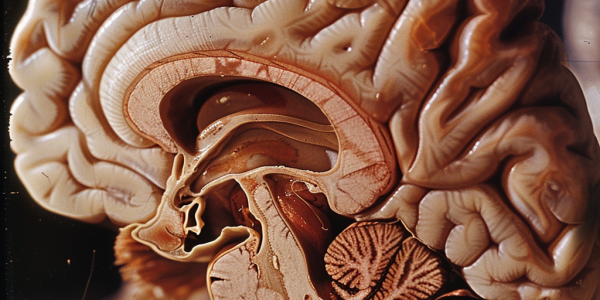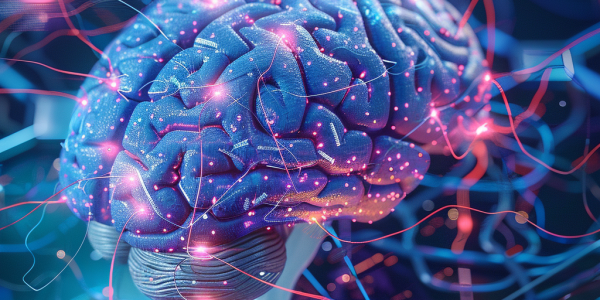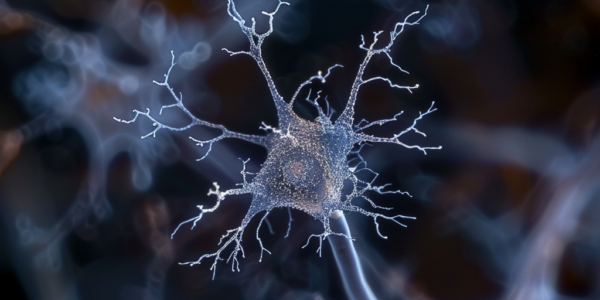Researchers Create World’s First Human Mini-Brain with Fully Functional Blood-Brain Barrier
Discover how researchers at Cincinnati Children’s Hospital Medical Center have created the world’s first human mini-brain with a fully functional blood-brain barrier (BBB), revolutionizing the study and treatment of brain disorders. This breakthrough enables a deeper understanding of neurological conditions and paves the way for innovative therapeutic strategies.
NeurologyLive® Brain Games Weekly Quiz Focuses on Primary Progressive Aphasia
Test your knowledge on primary progressive aphasia (PPA) with NeurologyLive® Brain Games weekly quiz series. Learn about the distinct features, brain regions affected, and subtypes of PPA. Join the neurology community in discussing and sharing quiz results to enhance learning and knowledge-sharing.
Groundbreaking Discovery: Specific Brain Cells Enhance Memory Focus and Storage
Groundbreaking neuroscience research identifies PAC neurons that enhance memory focus and storage without storing information themselves. Study sheds light on brain cells coordinating working memory, potentially leading to improved treatments for Alzheimer’s and ADHD. Discovery of PAC neurons utilizing phase-amplitude coupling to synchronize with memory-related brain waves highlights hippocampus’s role in controlling working memory. Research, part of NIH’s BRAIN Initiative and published in Nature, showcases Cedars-Sinai Medical Center’s pivotal role in unraveling brain processes. Understanding control aspect of working memory crucial for developing treatments for cognitive conditions, opening new avenues for exploring brain workings and memory processes.
Newly Found Genetic Variant Defends Against Alzheimer’s Disease
Columbia researchers have discovered a genetic variant that reduces the odds of developing Alzheimer’s disease by up to 70% and may be protecting thousands of people in the United States from the disease. The discovery of the protective variant supports emerging evidence that the brain’s blood vessels play a large role in Alzheimer’s disease and could herald a new direction in therapeutic development.
Samba Drumming Class Helps Woman Manage Parkinson’s
Discover how samba drumming is helping 65-year-old grandmother Sara Dove manage Parkinson’s. Learn about the benefits of physical activity and the growing body of research supporting it as a recommended aspect of symptom management for Parkinson’s.
Groundbreaking Study Shows Early High-Efficacy Therapies Improve Outcomes for Pediatric MS
Groundbreaking global study reveals that early and aggressive treatment with high-efficacy therapies can significantly improve outcomes for children with multiple sclerosis (MS). Research emphasizes the importance of administering high-efficacy disease-modifying therapies to pediatric MS patients early in their diagnosis to prevent the onset of significant disability. Study analyzed data from over 5,000 individuals diagnosed with MS during childhood over the past 30 years, drawing from international registries and national databases. Findings offer hope for improved treatment strategies for pediatric MS, potentially reshaping the approach to managing the condition in young patients.
Groundbreaking Bioluminescence Imaging Technique Revolutionizes Study of Oxygen Movement in the Brain
Groundbreaking study introduces bioluminescence imaging technique for real-time observation of oxygen movement in the brain, shedding light on hypoxia and related diseases. Method offers detailed insights into oxygen distribution and potential therapeutic interventions.
WHO Calls for Urgent Action on Rising Prevalence of Neurological Conditions Worldwide
The World Health Organization (WHO) has called for urgent action to address the rising prevalence of neurological conditions worldwide. A recent study published by The Lancet Neurology revealed that in 2021, over 3 billion individuals globally were living with a neurological condition. The study emphasized the urgent need to scale up targeted interventions to ensure that individuals living with neurological conditions can access quality care, treatment, and rehabilitation. It identified the top ten neurological conditions contributing to health loss in 2021, including stroke, neonatal encephalopathy, migraine, dementia, diabetic neuropathy, meningitis, epilepsy, neurological complications from preterm birth, autism spectrum disorder, and nervous system cancers.
Study Finds Environmental Chemicals Impact Oligodendrocyte Development
A recent study published in Nature Neuroscience has found that environmental chemicals can impact the development of oligodendrocytes, crucial for neurodevelopment. The study identified two classes of chemicals, quaternary compounds and organophosphate flame retardants, that disrupt oligodendrocyte development through distinct mechanisms. The research also demonstrated the impairment of oligodendrocyte development in mice and human 3D organoid models, as well as associations with adverse neurodevelopmental outcomes. This highlights the need for further investigation into the potential impacts of these environmental chemicals on human health.
Link between Pesticides and Parkinson’s Disease
Revelations about the link between pesticides and Parkinson’s disease highlight the need for proactive measures to safeguard neurological well-being. New research funded by the Michael J. Fox Foundation has identified three additional pesticides associated with an increased risk of Parkinson’s disease, emphasizing the urgent need for collective action to address the impact of pesticide usage on human health.










